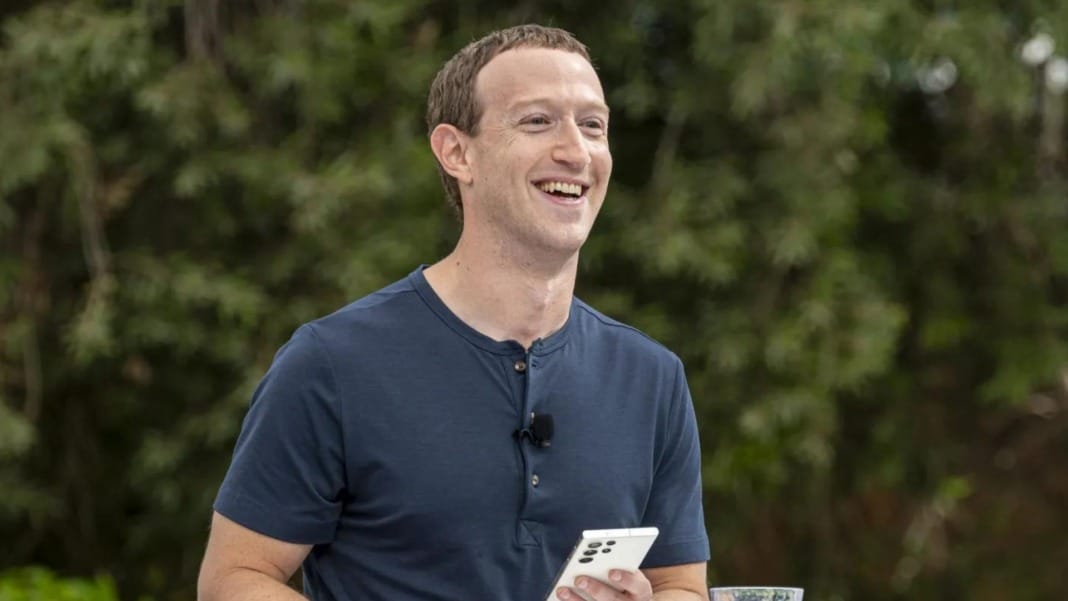In a recent interview, Meta CEO Mark Zuckerberg expressed his views on the complexities surrounding copyright and the role of creators in training artificial intelligence (AI). He suggested that individual creators and publishers often overvalue the significance of their content in the larger landscape of AI development. While some content may be valuable enough to form partnerships, Zuckerberg noted that most creators should not expect compensation for the use of their work in AI training.
Zuckerberg’s comments come as Meta navigates ongoing legal disputes over the use of data for AI training without explicit permission, a hot topic for many tech companies. He indicated that while Meta would consider striking deals with creators whose work is deemed particularly valuable, the company would not hesitate to walk away from those who demand payment for their content.
Copyright and AI training

Like many major AI companies, Meta has faced legal challenges related to scraping online content for training AI models. Last year, the company was sued by a group of authors, including comedian Sarah Silverman, who claimed that Meta’s LLaMA model had been unlawfully trained on pirated versions of their books. While this lawsuit remains unresolved, with the authors’ legal team facing criticism from the presiding judge, Zuckerberg remains confident that the company’s practices align with US fair use laws.
Zuckerberg addressed these concerns, explaining that the issue of fair use will likely need to be re-evaluated in the context of AI development. “In any new medium in technology, concepts like fair use need to be redefined,” Zuckerberg said. “When you release content into the world, there are questions about how much control you still have over it and how it can be used. These questions will need to be revisited in the age of AI.”
He also drew comparisons to the history of copyright law, pointing out that fair use allows people to build on each other’s work without seeking permission or offering compensation. This flexibility is often seen as beneficial, though some AI developers have interpreted it more broadly than the courts.
AI partnerships and content scraping
While some AI companies have entered into paid partnerships with major content creators, Zuckerberg clarified that Meta’s approach would prioritise cost-effectiveness. The company previously signed deals with Universal Music Group, among others, to regulate AI-generated content, and other tech giants, such as OpenAI, have formed similar partnerships with news outlets.
However, Zuckerberg noted that Meta’s business model does not rely heavily on purchasing content. Referring to past instances where Meta opted to block news outlets in Australia and Canada rather than pay fees for links to their content, he suggested a similar stance might apply to content used for AI training. “If creators demand we don’t use their content, we’ll simply stop using it,” Zuckerberg stated. “It won’t affect the outcome significantly.”
Despite the ongoing legal debates, many AI companies, including Meta, scrape public social media content for training. According to Meta’s terms of service, the company uses public posts on platforms like Instagram and Facebook. In response, some creators have sought ways to prevent their work from being used in AI training, though they often find themselves constrained by the platform’s policies.
Future of AI content at Meta
Meta’s strategy for AI-generated content may resemble its approach to news content, where the company has demonstrated a reluctance to pay for material that it deems unnecessary. “We’re a large company,” Zuckerberg said. “We pay for content when it’s valuable to people, but we won’t pay for content that isn’t.”
Zuckerberg’s remarks underscore Meta’s belief that news content has limited value for its platforms, partly due to the controversy it can provoke and the negative emotions it sometimes generates among users. He revealed that the company would likely continue showing less news content, reflecting its user base’s preferences.
As Meta continues to develop its generative AI products, it remains to be seen what role creators and their content will play. However, for most creators, compensation for their work’s use in AI training appears slim.





